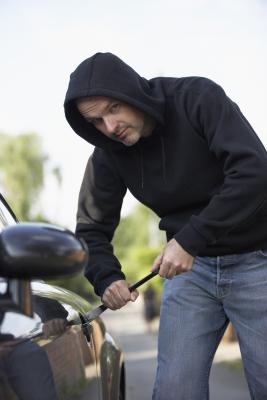
Buying a stolen vehicle is probably one of the worst things that can happen to a car buyer. You can lose thousands of dollars, end up involved in lawsuits and even run the risk of being arrested if the cops catch you driving the vehicle before you discover it was stolen. Stolen vehicles are one of the reasons that getting a vehicle history report has become increasingly popular amongst buyers of used cars. A vehicle history report uses your vehicle's VIN number to pull up information about it, including its insurance claim and theft history.
Get the vehicle identification number for the vehicle you want to check the history of. The VIN number is the 17-digit number that is used to identify each unique vehicle. The car should have the VIN number on several areas of the body, including a stamped plate on the dashboard and printed on a sticker that is located inside the door jamb on the driver's side of the car.
Go to the National Insurance Crime Bureau website and enter the vehicle's VIN number into the VIN check function. Agree to the NICB's terms and complete the captcha. By hitting search, you are running the car's VIN number against a database of vehicles that have been stolen or severly damaged. The NICB VIN check function is available free of charge and will give you the answer you are looking for.
Read the report generated by NICB. If the vehicle does not have a record with the NICB, it has never been reported as stolen. If the vehicle does have a record with the NICB that lists it as a possibly stolen vehicle, you will want to have a full vehicle history report from a company such as CarFax or AutoCheck to find out more information. You may also want to contact your local police department.